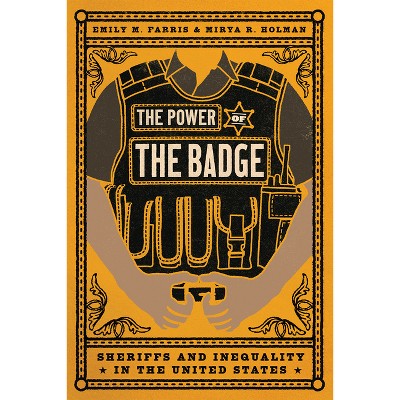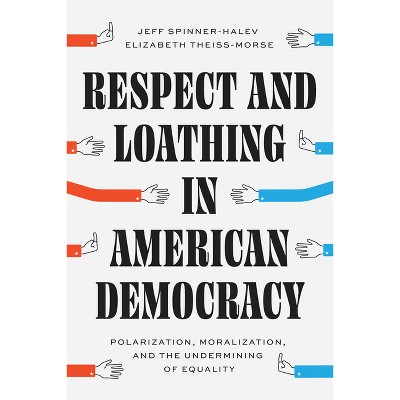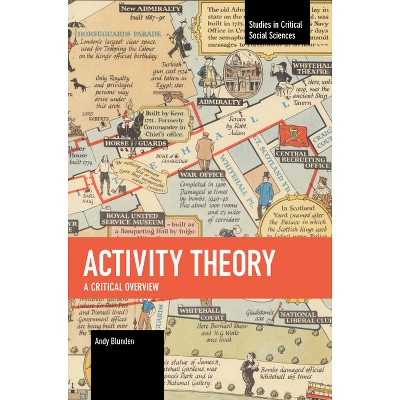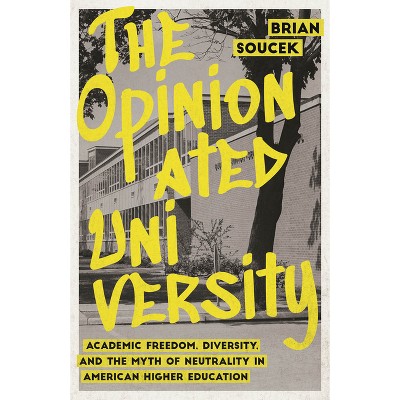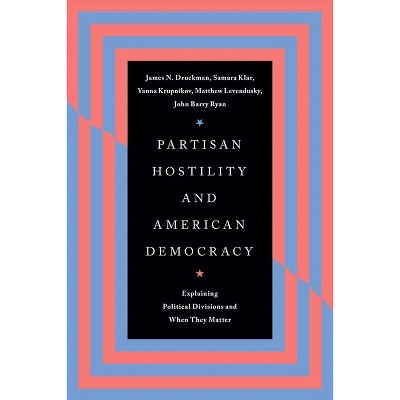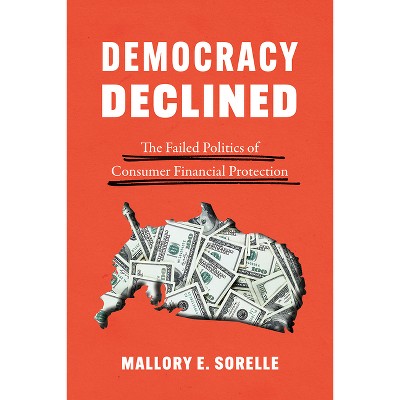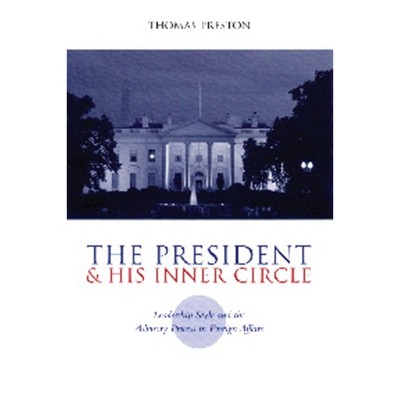Sponsored

Respect and Loathing in American Democracy - (Chicago Studies in American Politics) by Jeff Spinner-Halev & Elizabeth Theiss-Morse
In Stock
Sponsored
About this item
Highlights
- A deep examination of why respect is in short supply in politics today and why it matters.
- About the Author: Jeff Spinner-Halev is the Kenan Eminent Professor of Political Ethics at the University of North Carolina at Chapel Hill.
- 280 Pages
- Political Science, Civics & Citizenship
- Series Name: Chicago Studies in American Politics
Description
About the Book
"Respect is in trouble in American politics. Many Americans think that respecting other citizens is a virtue of a democratic society, yet many struggle to respect opposing partisans. It is especially liberal citizens, who hold respect as central to their robust view of democratic equality, who struggle the most granting respect to others. In Respect and Loathing in American Democracy, political theorist Jeff Spinner-Halev and political psychologist Elizabeth Theiss-Morse team up to explain why respect is important to democracy and yet so lacking in contemporary US politics. Drawing on evidence from extensive focus groups, national surveys, survey experiments, and the views of political theorists, Spinner-Halev and Theiss-Morse develop a theoretical framework that places respect squarely in the context of a polarized United States. They elucidate how clashing, moralized worldviews undergird partisan conflict and shape its character and intensity. The authors argue that liberals and conservatives are less divided on issues than many believe, but they are divided on which issues they moralize. That liberals moralize their social justice worldview and conservatives their national solidarity worldview makes it hard for them to grant respect to each other, despite so many people believing in the importance of respect. The authors differentiate between two types of respect and distinguish respect from tolerance. Respect is both far reaching and difficult to give in ways that many citizens and theorists fail to recognize. Deep-seated tension exists between respect and justice, and political theorists and citizens alike need to acknowledge that tension. Spinner-Halev and Theiss-Morse argue that respect is connected to pluralism, and propose a possible path forward that is challenging but far from impossible for scholars and citizens to traverse"--Book Synopsis
A deep examination of why respect is in short supply in politics today and why it matters.
Respect is in trouble in the United States. Many Americans believe respecting others is a necessary virtue, yet many struggle to respect opposing partisans. Surprisingly, it is liberal citizens, who hold respect as central to their view of democratic equality, who often have difficulty granting respect to others. Drawing on evidence from national surveys, focus groups, survey experiments, and the views of political theorists, Jeff Spinner-Halev and Elizabeth Theiss-Morse explain why this is and why respect is vital to--and yet so lacking in--contemporary US politics.
Respect and Loathing in American Democracy argues that liberals and conservatives are less divided than many believe, but alienate one another because they moralize different issues. Liberals moralize social justice, conservatives champion national solidarity, and this worldview divide keeps them at odds.
Respect is both far-reaching and vital, yet it is much harder to grant than many recognize, partly because of the unseen tension between respect, social justice, and national solidarity. Respect and Loathing in American Democracy proposes a path forward that, while challenging, is far from impossible for citizens to traverse.
Review Quotes
"In their new and theoretically innovative book, Spinner-Halev and Theiss-Morse argue that the nation's politics suffers from a lack of respect among political opponents...Respect and Loathing blends political philosophy and empirical social science. For that reason alone, the book is a model for other political scientists and scholars of any discipline interested in how normative philosophical inquiry can inform empirical analysis, and vice versa...a rich and thoughtful discussion of what respect truly means."-- "Political Science Quarterly"
"The book is both powerful and timely, and it demands our close attention."-- "Oxford Political Review"
"This work nicely blends political theory and the empirical study of behavior to construct an important examination of democracy in the US today."-- "Choice"
"Respect and Loathing in American Democracy breaks much new ground. It brings normative insight to bear on fresh data to illuminate a problem at the core of democracy in our time: why people have such a hard time respecting those on the other side of our polarized partisan divide. An important book."--Stephen Macedo Princeton University
"Spinner-Halev and Theiss-Morse take their own road to assessing what ails American politics. Whereas there are numerous books and articles on racism/identity, nationalism, and white working-class politics, Respect and Loathing in American Democracy tells a novel story that is thoughtful, rich in evidence, and engaging."--Matthew Wright University of British Columbia
About the Author
Jeff Spinner-Halev is the Kenan Eminent Professor of Political Ethics at the University of North Carolina at Chapel Hill. Elizabeth Theiss-Morse is the Willa Cather Professor of Political Science at the University of Nebraska, Lincoln.